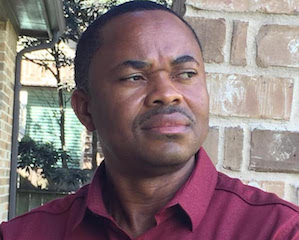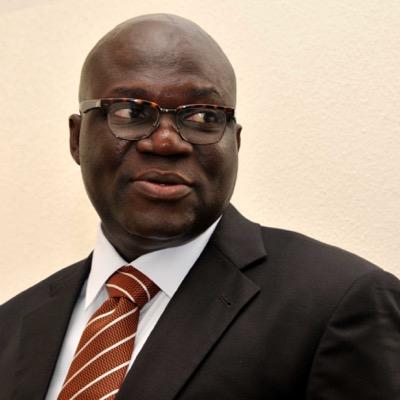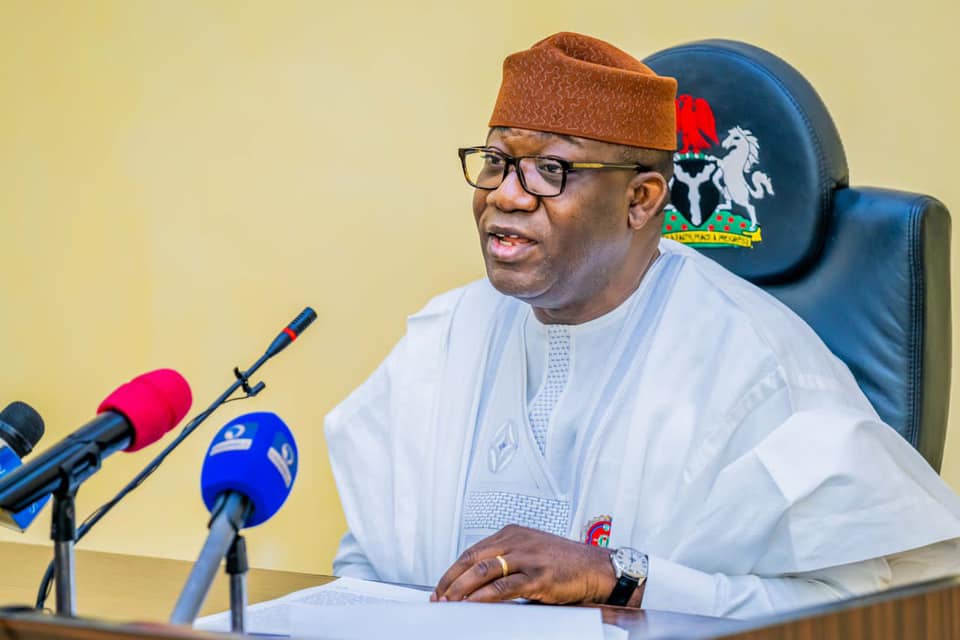What did Goodluck Jonathan forget at the Villa?
By Osmund Agbo
For the past several days, the rumor mill has been buzzing non-stop about a potential presidential run in 2023 by Nigeria’s former President Goodluck Ebele Jonathan. Dr. Reuben Abati, his former spokesperson was credited to have made a Facebook post suggesting that his former boss was set to join the All Progressives Congress (APC) and that he will declare for the presidency on the platform of the ruling party. But Reno Omokri, another of Jonathan’s trusted media aides had since dismissed that statement as “at best a figment of the imagination of that journalist”. It turned out it was a hoax and that Abati was misquoted but not before the news had elicited a flurry of visceral reactions among a swath of Nigerians, including yours truly.
Jonathan himself seemed to be relishing the controversy when on Friday he told supporters that he could not declare “because some processes are still ongoing” and that they should “just watch out”. The former university teacher whom the gods elevated beyond his wildest dreams, was Nigeria’s President for five years, between February 9th, 2010 to May 29th, 2015. Even his critics will give it to him that he is naturally nice and has a likeable personality with an easy-going demeanor. Unlike the current occupant of Aso Rock whom many accuse of prosecuting a tribal and religious agenda, Jonathan is not tarred by the brush of religion or ethnicity.
It has been reported severally that his government focused more in northern Nigeria where for example, he established 165 Almajiri schools and spent a whopping N15 billion more than anywhere else in the country including his home state of Bayelsa. And not in the least of his strings of achievements, is the fact that he is one of the African Unicorns who as a sitting head of state, freely conceded electoral defeat without a gun pointed to his head.
As a Nigerian of Igbo tribal stock, it will be hard to forget in a hurry, the olive branch he extended to my kinsmen and how his small gestures of kindness at some point, restored a people’s confidence in the troubled Nigerian project. Though approved under President Yar’ Adua, it was during his tenure that the southeast finally got their own International Airport, following the upgrade of the Akanu Ibiam Airport, Enugu. It was also to his credit that for the first time after the Nigerian-Biafra war, Lt-Gen. Azubuike Ihejirika, an Igbo became the chief of Army staff and even when Ikemba Ojukwu, the former Biafran warlord passed away, his administration came close to giving him a state burial with full military honors. Those were little gestures of inclusion but with far reaching implications for a beleaguered people.
I can count a few other reasons other than the ones mentioned above that made the man out as a decent human being. But Goodluck Jonathan was no good president. In fact, he was so terrible that in his last year in office, Nigerians were willing to stake their future on a former military dictator, already in his seventies and with questionable academic credentials, if only to stop Nigeria hemorrhaging from the monumental graft that happened continually under his watch.
Once upon a time, Nigerians came to the sad realization that their country was losing more than $4 billion a year through a well-orchestrated fuel subsidy scam. Here is how it panned out; the country’s daily consumption stood at 35 million liters but 59 million liters were reported as discharged by vessels per day. The extra 24 million liters per day that was unaccounted for but paid to the marketers amounted to 669 billion naira ($4.14 billion) stolen in a single year.
The year was 2011 and it was the month of January. In that year, the education and health budgets were 304B and 202B respectively. This meant that some highly placed Nigerians were stealing from that sector alone, an amount in excess of the combined annual budget for Education and Health. This prompted the House of Representatives committee led by Farouk Lawan at the time, to institute a probe and the revelations were startling.
Seventy-two fuel importers, many of whom were allegedly linked to senior government officials, were involved in the scam. In one particular instance, payments totaling exactly $6.4m flowed from the state treasury 128 times within 24 hours to some unknown business entities. President Jonathan later set up another committee headed by Aigboje Aig-Imoukhuede, who was the Group Managing Director of Access Bank to investigate the fraudulent claims for petrol subsidy and their findings were similar. The firms found guilty were only asked to refund N382 billion criminally collected as subsidy in 2011. Nigerians have no idea who and who went to jail for what amounts to an economic sabotage of grand proportion. And we are talking about a country that cannot afford to pay men and women of her police force a livable minimum wage.
It is worthy to note that no one had shown how much of those monies were recovered and remitted to the treasury. The committee had in the course of their investigation, invited all the 116 oil firms involved in petrol import at the time and 107 responded. The other nine flatly refused to honor the invitation and we don’t know if and how they were punished. In that year alone, Nigeria spent a whopping 2.587 trillion naira ($16.46 billion) on the fuel subsidy, 900% more than the 245 billion naira allocated in the budget. Now that was a record even for a “fantastically corrupt” country called Nigeria.
Crude Oil theft under this former president was at an all-time high and instead of adequately equipping the navy and other related agencies to protect the goose that laid the Nigerian golden egg, Jonathan outsourced it to the Niger Delta militants who were paid several billions of naira annually. Those touts got so rich to the extent that one of them, Government Ekpemupolo, also known as Tompolo went and acquired for himself a warship. Yes, he did and you should forget the grammar about national security and all that. Of course, we are talking about a president, under whose watch, money meant to buy military hardware to combat insurgency was diverted to private pockets.
The then CBN Governor Sanusi Lamido Sanusi once cried out about a missing $20B from the accounts of the Nigerian National Petroleum Corporation (NNPC) and he was hounded out of office. In the wake of that allegation and with a firestorm of criticism swirling around the administration, the Finance Minister at that time, Ms. Ngozi Okonjo-Iweala initiated a quick audit of the CBN and the Petroleum Ministry. At the end she concluded that only $10.8 billion remained unaccounted for with all fingers pointing towards Diezani Alison-Madueke, the oil minister who insisted that the money not remitted was to pay for subsidies. Jonathan’s administration only wanted us to believe then that one ungrateful appointee was politically motivated to sling mud at his government for no reason.
Mr. Jonathan was reported to have inherited as much as $60 billion in foreign reserves from the Obasanjo administration but plundered it away to less than $40 billion in five years. Both domestic and foreign debt that his predecessor worked hard to avoid piled up. In 2010 when Jonathan was sworn in, power generation in Nigeria was 3,000 megawatts. By the time he was handing over to his successor in May 2015, power generation had dropped to less than 2000 megawatts. But in all fairness, he was not the first person to make promises about solving Nigeria’s perennial energy problem which has persisted even till this day.
Many of the problems that bedeviled Jonathan’s administration could have been avoided by a man who was prepared and willing to do the job but he wasn’t. Providence and greed thrusted upon Nigeria; a man least prepared for the job. President Obasanjo couldn’t achieve his third term bid, and so he settled for Jonathan’s principal, Shehu Yar’ Adua, a man who suffered from a terminal illness but whom Obasanjo believed would offer him the opportunity to play the de facto ruler of Nigeria. That was how Obasanjo employed strong arm tactics to deflate the ambition of the likes of Peter Odili and Donald Duke, both of whom in comparison to Yar ‘Adua, were in better shape to take on the job.
President Jonathan is often quoted to say that his political ambition is not worth spilling the blood of any citizen except it did. He failed to reckon that when for political or other self-seeking reasons, he looked the other way while his appointees and associates cornered funds meant to fight Islamic insurgency, not just one but thousands of Nigerians were brutally murdered. The man wants us to believe that he was not corrupt but his administration unconscionably threw wide open the door to Nigeria’s treasury for his powerful friends and political associates to help themselves with the till for as long as they wished, while he pretended to be asleep or blind.
I get it that any of the past Nigerian rulers dead or alive, placed alongside the current occupant of Aso Rock Villa, could easily earn the status of an angel. In many ways, Jonathan was way better than Buhari but it’s the biggest insult to our collective sensibility to suggest that the man who presided over the world’s greatest sleaze-fest, deserves a second chance. In saner climes where actions have consequences, many of Nigeria’s past civilian and military rulers should be cooling their heels in the gulag, for both sins of omission and commission. Jonathan’s incompetence and ineptitude produced Buhari who many believed was coming to clean up his mess, albeit wrongly.
And how about showing some political sensitivity and giving the Igbos a chance to produce the next Nigerian president? Even his south-south brother and the leader of PANDEF, Chief Edwin Clark thinks it’s time. If Jonathan is human enough, the way he is perceived, wouldn’t he wish to support the very people that showed him much love and treated him like one of their own, the sin of which they are paying heavily under the current government. One would have thought that loyalty is a two-way traffic.
Each time we hear about Jonathan’s potential 2023 presidential run, my stomach regurgitates bile and I pray that someone should spare many of us the horror of another nightmare. It’s such a bad joke that leaves a sore taste in the mouth.
Dr. Agbo, a Public Affairs analyst is the coordinator of African Center for Transparency and Convener of Save Nigeria Project. Email: [email protected]




